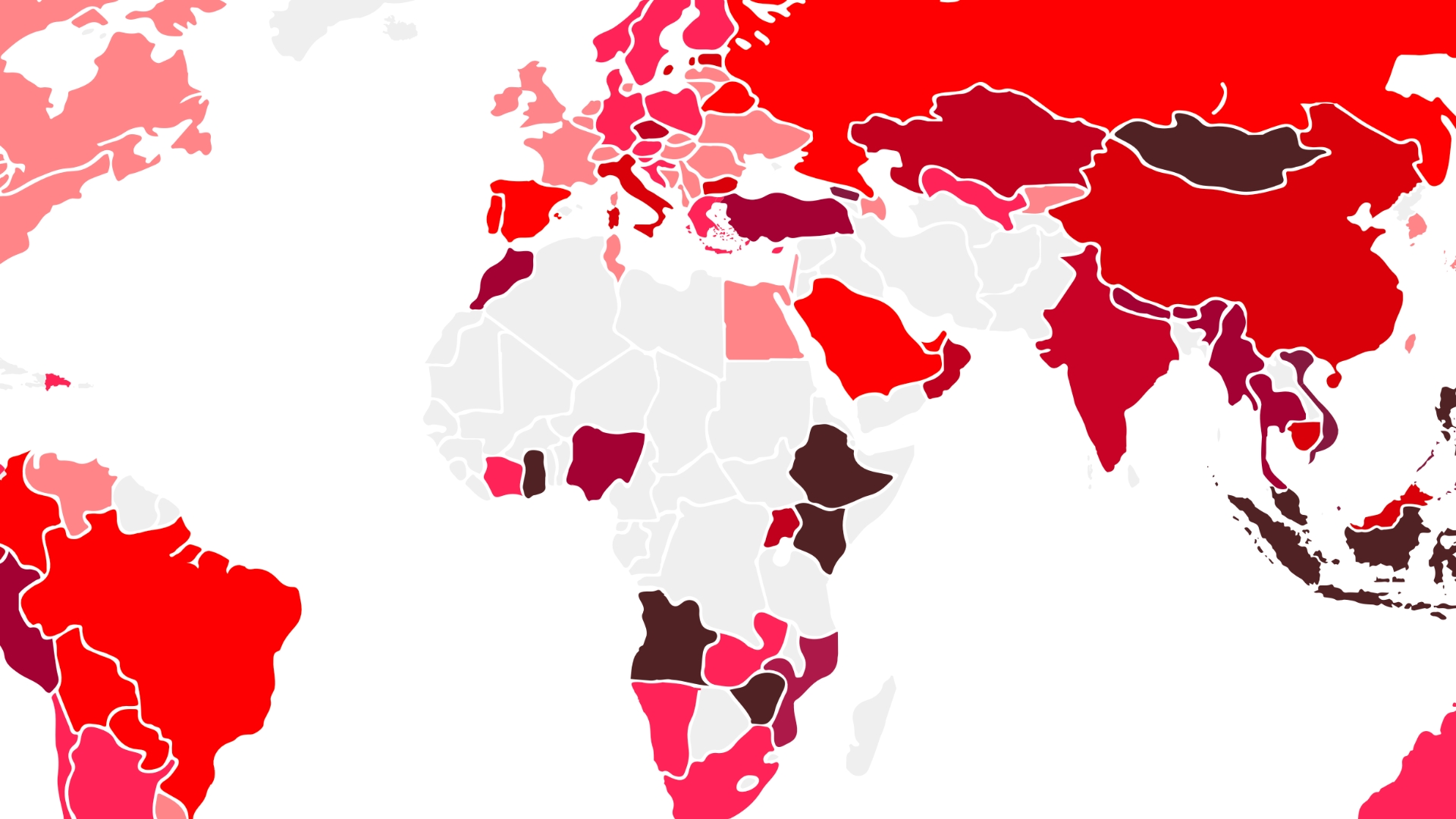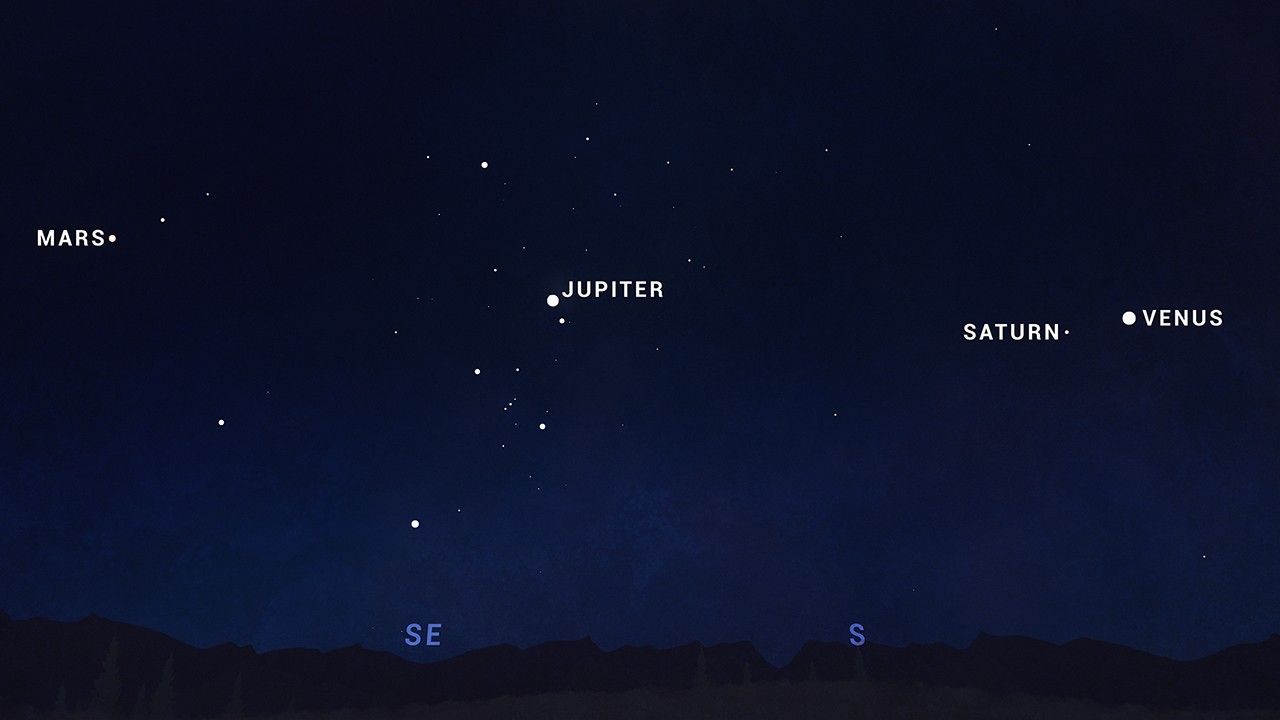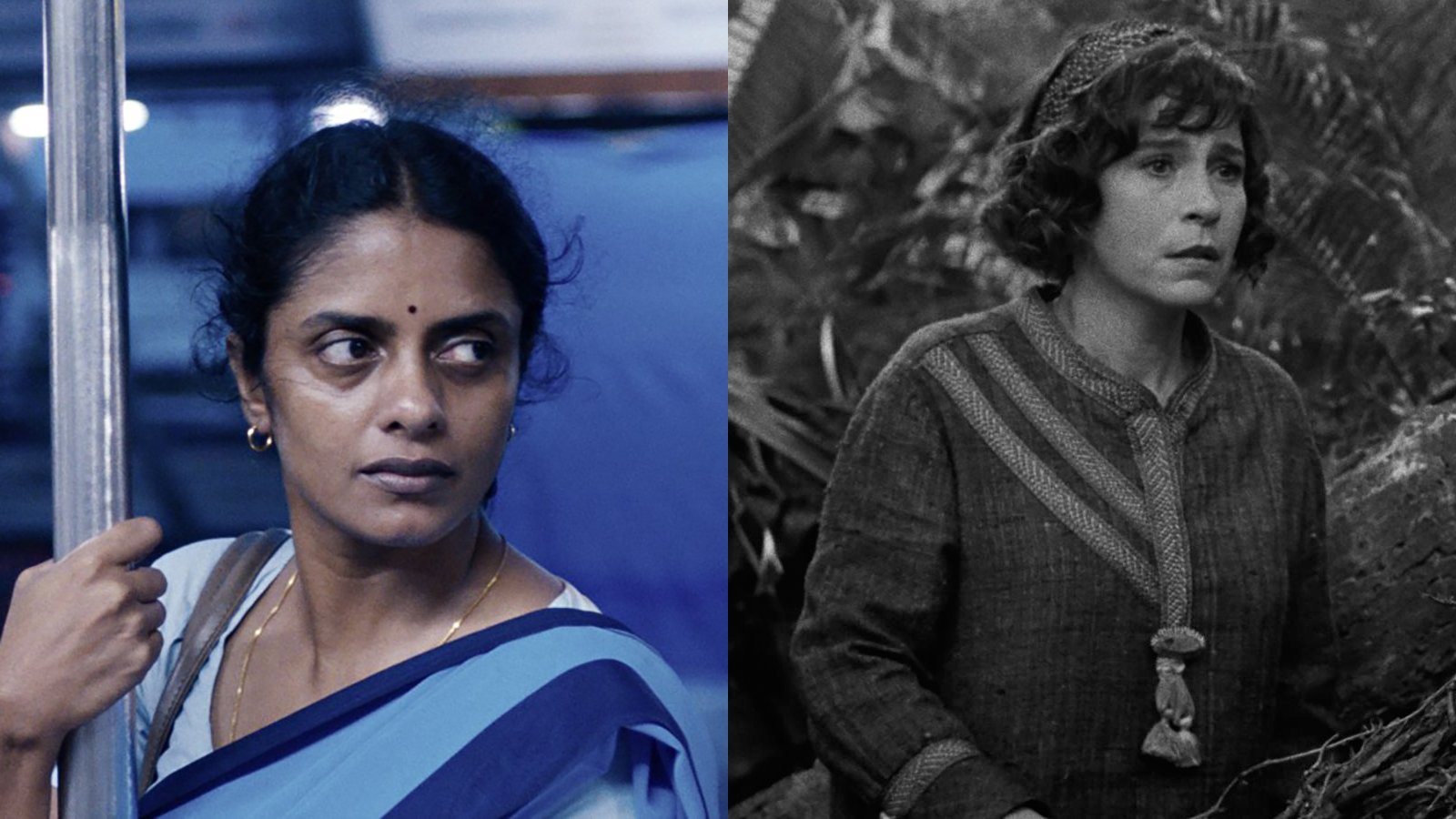Emilia Pérez and the Oscars’ Other Scandalous Campaign Takedowns and Self-Sabotages
It’s Oscar season again in Hollywood, although it can hardly be said that this year has seen a smooth, celebratory homestretch leading to the big event. Between the results of the 2024 election and the horrific fires that swept through Los Angeles almost as soon as 2025 began, it almost seems as if Tinseltown’s biggest, […] The post Emilia Pérez and the Oscars’ Other Scandalous Campaign Takedowns and Self-Sabotages appeared first on Den of Geek.

It’s Oscar season again in Hollywood, although it can hardly be said that this year has seen a smooth, celebratory homestretch leading to the big event. Between the results of the 2024 election and the horrific fires that swept through Los Angeles almost as soon as 2025 began, it almost seems as if Tinseltown’s biggest, most congratulatory night is more a desperate attempt to pull something, anything, good out of the last year instead of a genuine commemoration of 2024’s cinematic achievements.
Which is a shame, since 2024 was in fact a pretty damn good year for film. But even in the good times for Hollywood, even in the years when cinema was a shining beacon for culture, art, and significant conversation throughout the world, Oscar season has always brought with it the threat of scandal, sabotage, and self-destruction. That’s because the pettiness and greed also inherent in the fabric of the industry rears its ugly head in the form of one film’s camp trying to bring down another’s, all in pursuit of the prestige, attention, and (presumably) wealth associated with landing one of those little gold statues.
This year is no different: as we’ll discuss later, one film alone has been rocked by no less than three scandals while two others were the subject of relatively minor kerfuffles than probably avoided becoming larger issues thanks to the spectacular crash-and-burn of what was until recently the presumed Oscar frontrunner. Before we get to that, however, here’s a brief rundown of some of the major times that Oscar hopefuls were either brought down by outside forces, other films, or themselves.
Citizen Kane vs. William Randolph Hearst
Don’t for a minute think that campaigns to take down Oscar nominees began in the modern Hollywood era. When director, producer, co-writer, and star Orson Welles’ masterpiece Citizen Kane was released in 1941, the title character was speculated (and later confirmed) to be based at least partially on then-powerful publishing magnate William Randolph Hearst. And Hearst did not take kindly to Welles’ portrayal.
Hearst’s full-on assault on the film and Welles went far beyond the Oscars. The publisher, who wielded journalism as a weapon and whose newspapers often played fast and loose with the truth, rallied some of his loyal friends in Hollywood to purchase the film and destroy the negative. When that didn’t happen, he tried to bully theater owners into not showing it, which worked to some degree. He also banned any mention of it or advertising for it from his media empire. And course he went after Welles himself, questioning the 25-year-old auteur’s patriotism and even allegedly planting an underage girl in his hotel room with photographers outside ready to pounce.
Citizen Kane was nominated for nine Oscars, including Best Picture, Director, and Actor, but it only won a single trophy: for Best Original Screenplay. And every time Welles or the movie was mentioned during the ceremony, people in the audience booed. Hearst’s campaign had long-lasting effects as well: a box office disappointment upon its release, Citizen Kane vanished from view. It would be another 25 years before critical reappraisals tagged it as one of the indisputable masterpieces in all of film history.
Good Will Hunting vs. As Good As It Gets
Matt Damon and Ben Affleck were kicking around Hollywood as struggling yet promising young actors when they wrote and starred in Gus Van Sant’s Good Will Hunting (1997) alongside Robin Williams. The latter won Best Supporting Actor at the Oscars while Affleck and Damon went home with the prize for Best Original Screenplay—although somebody did their damnedest to hint that the two childhood friends from Boston had not, in fact, penned the screenplay on their own.
A whisper campaign suggested that both screenwriting legend William Goldman (All the President’s Men, The Princess Bride) and The Silence of the Lambs scribe Ted Tally either contributed to or outright wrote Good Will Hunting. Goldman said he offered some notes on the piece to the pair and nothing more, while Tally went directly to Variety to deny a hit piece published in the trade, which insinuated that he had penned the dialogue. The smear didn’t take, since Affleck and Damon did win. But Damon told The New York Times years later that he was informed that people working on the campaign for As Good as it Gets (but not, notably, its director James Brooks) were behind the campaign.
Shakespeare in Love vs. Saving Private Ryan
It should come as no surprise that Harvey Weinstein, the former Miramax and Weinstein Company head (not to mention convicted sex offender and all-around pile of human garbage), was behind some of the nastiest Oscar sabotage campaigns of all time, and his assault on 1998 frontrunner Saving Private Ryan in service of his own Oscar contender, Shakespeare in Love, is now legendary.
A powerful, immersive World War II epic, Ryan was seemingly on a glide path to a Best Picture win, with Steven Spielberg also on track to notch his second Best Director statue, until Weinstein allegedly launched a campaign that was the public relations equivalent of Ryan’s recreation of the Normandy landing. While pushing the fun but ultimately frothy (and now almost forgotten) Shakespeare with an endless assembly line of screenings, parties, and glad-handing events, he also allegedly began a whisper campaign suggesting that everything in Ryan past the 20-minute mark (i.e. the opening sequence on the beaches of Normandy) was more or less worthless.
Spielberg, being a decent human being and not a bottom-feeding shitstain like Weinstein, refused to strike back, but unfortunately the shitstain’s plan worked. While the Beard did go home with his well-deserved Best Director prize, Ryan lost best picture to Shakespeare. In the fallout, the modern, ceaseless and aggressive Oscar campaign was born. It’s a tragedy worthy of the Bard himself, even if the rom-com about him wasn’t.
A Beautiful Mind vs. The Truth (?)
Questioning the presumed veracity of a biopic or historical drama is something we do all the time now in this era of instant online reactions. Still, it must be stressed again and again (although it never seems to sink in) that narrative movies are not documentaries; they don’t purport to offer the unvarnished truth of a person’s life or certain events in history, nor are they obliged to. But that didn’t stop a wicked smear campaign against Ron Howard’s A Beautiful Mind (2001) in which Russell Crowe played the brilliant but schizophrenic mathematician (and Nobel Prize winner), John Nash.
With A Beautiful Mind considered a frontrunner in the Best Picture, Director, Actor, and Supporting Actress races, the film was attacked for sanitizing Nash’s character (unsubstantiated rumors circulated that he was both an antisemite and a closeted gay man), whitewashing the portrayal of his wife (who was born in El Salvador but was played by a decidedly non-Latino Jennifer Connelly), and generally fooling around with the accuracy of its story. The attacks came from all sides, ranging from publications as disparate as The Guardian and The Drudge Report, and of course it was suspected that Harvey Weinstein was behind it. In the end, it didn’t matter: the movie, Howard, and Connelly all won their respective categories. Still, some speculate that it cost Crowe a second Best Actor Oscar, although we wonder if he could have ever really beaten a performance as formidable as Denzel Washington’s in Training Day.
Slumdog Millionaire vs. India
Danny Boyle’s Slumdog Millionaire, released in 2008, tells the story of an 18-year-old boy (Dev Patel) from the streets of Mumbai who ends up winning the grand prize on the Hindi version of Who Wants To Be a Millionaire? while reuniting with the love of his life (Frieda Pinto). Flashy, original, and highly energetic, the film collected a hefty eight Oscars at the 2009 ceremony, including Best Picture, Best Director, and Best Adapted Screenplay. But it didn’t get to those lofty heights without some attacks along the way, although whether those were launched by rival campaigns remains unclear.
First, the film was accused of downplaying the work of “co-director” Loveleen Tandan, who the producers insisted was billed that way for cultural reasons in India. There were also accusations of cultural appropriation, with a film steeped in Indian culture helmed by a Westerner. But the most serious allegations suggested that child actors Rubina Ali and Azharuddin Ismail, who both lived in the slums of Mumbai and played younger versions of two of the film’s leads, were paid next to nothing for their work and remained in the slums after production was completed.
Boyle and producer Christian Colson pushed back, saying that trust funds had been set up to pay for the actors’ education, health care, and other needs. Both Ali and Ismail reportedly got out of the slums eventually and into houses paid for through their funds while Slumdog won all those Oscars. Still, we wonder whether the film could survive such a gauntlet of accusations today.
The Hurt Locker vs. Avatar
The Hurt Locker producer Nicolas Chartier ended up getting himself banned from the Oscars the year that his movie—an intense, terrifying portrait of a small squad of explosive disposal specialists under both physical and psychological fire during the Iraq War—was nominated for Best Picture. That’s because Chartier sent out a mass email (a breach of Academy rules) asking voters to throw their support behind director Kathryn Bigelow’s tiny ($15 million budget), independent Hurt Locker instead of James Cameron’s massive, $250 million sci-fi behemoth Avatar.
A retaliatory campaign against The Hurt Locker itself began in the press, with the Los Angeles Times, Newsweek, and other outlets all publishing hit pieces disputing the accuracy of the film and the actions of the characters played by Jeremy Renner, Brian Geraghty, and Anthony Mackie. Both Avatar distributor 20th Century Fox and (you guessed it) Inglourious Basterds campaigner Harvey Weinstein were rumored to be behind the attacks, although that was never proven. The Hurt Locker did in fact become the little movie that could, winning Best Picture, Best Director, and Best Original Screenplay. In other words, despite being unable to attend the ceremony, Chartier still got his little gold man.
Emilia Pérez vs. Everybody, Including Emilia Pérez
This year’s Oscar season started off in relatively benign fashion, with early frontrunner Anora the topic of a heated discussion over whether there should have been an intimacy coordinator on set due to the film’s copious nudity and sex scenes (stars Mikey Madison and Mark Eydelshteyn both declined one). Following that, fellow frontrunner The Brutalist came under fire when the film’s Oscar-nominated editor, Dávid Jancsó, inexplicably blurted out in an interview that the film had used AI to enhance stars Adrien Brody and Felicity Jones’ Hungarian-language dialogue. Director Brady Corbet was forced to push back on the revelation in a climate where AI is already viewed with fear and suspicion by most creatives.
But both those mini-scandals have remarkably faded quickly after the maelstrom around Emilia Pérez arrived. With the announcement of the movie receiving an astounding (and in our opinion, undeserved) 13 Oscar nominations, including Best Picture, Best Actress, and Best Director, a spigot of scandalous gasoline has been unleashed on the Netflix film’s awards campaign. First French director Jacques Audiard was accused of exploiting Mexican culture in the movie, not helping matters when he called Spanish the language of “the poor and migrants.” Then lead actress Karla Sofía Gascón—the first openly transgender person ever nominated for an Oscar—baselessly accused unnamed people in the camp of I’m Still Here star Fernanda Torres, also a Best Actress contender, of “tearing me and Emilia Pérez down.”
Gascón, however, didn’t need any help wrecking her own Oscar campaign (and career?) when an online journalist uncovered a long string of posts on her X (formerly Twitter) account that amounted to nothing less than a stream of Islamophobia, racism, and cruelty, including disparaging remarks about Muslims in her home country of Spain, vicious comments on police officers murdering George Floyd in the U.S. in 2020, and even barbs at the 2021 Oscar ceremony, which she described as an “Afro-Korean festival” (in reference to newly minted Oscar winners Daniel Kaluuya and Youn Yuh-jung). Even though Gascón deleted the posts and finally deactivated her account—while issuing a half-hearted apology—it seems, at press time, as if the damage to both Gascón and the film has been done.
There is already speculation over whether fellow campaigns might have helped fan the social media spread of Gascon’s comments until they were picked up by major mainstream media outlets. But, in all honesty, in the modern age of online culture, it doesn’t even take a Harvey Weinstein to stick the knife in. Your own behavior and hostile stan culture on the internet can do the job for them.
The 97th Academy Awards ceremony will be held on March 2, 2025, at the Dolby Theatre in Hollywood.
The post Emilia Pérez and the Oscars’ Other Scandalous Campaign Takedowns and Self-Sabotages appeared first on Den of Geek.












































































